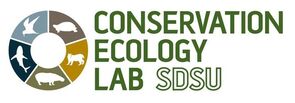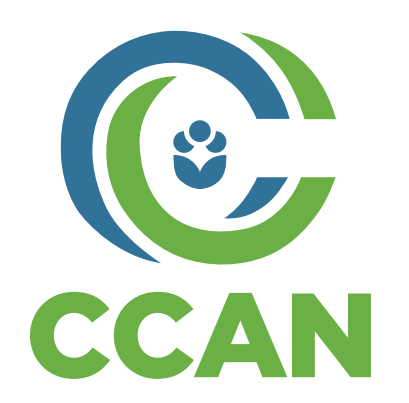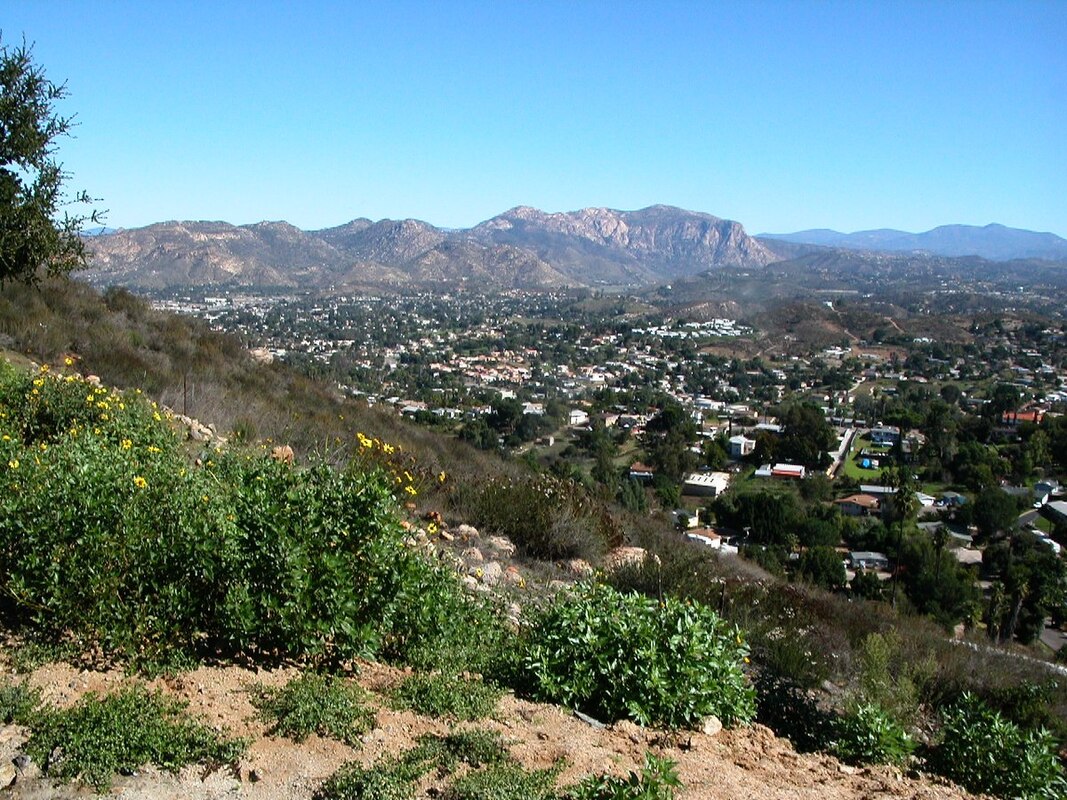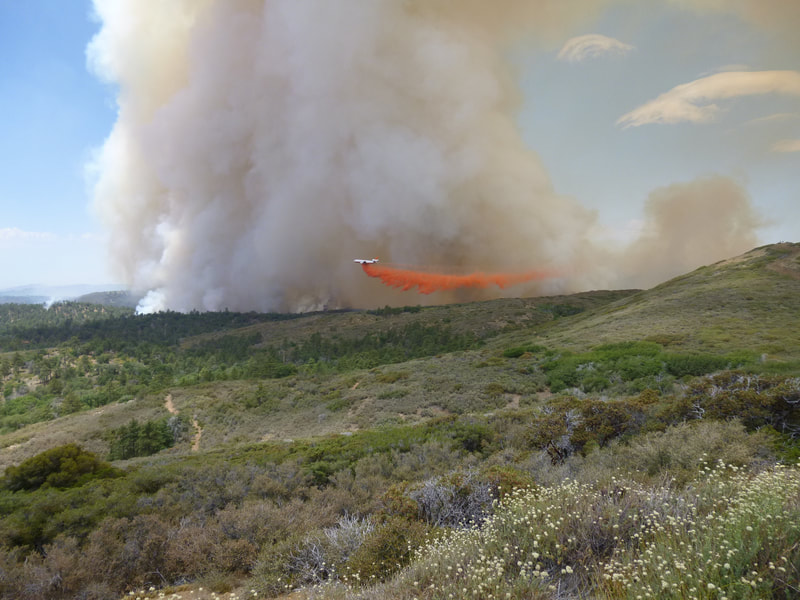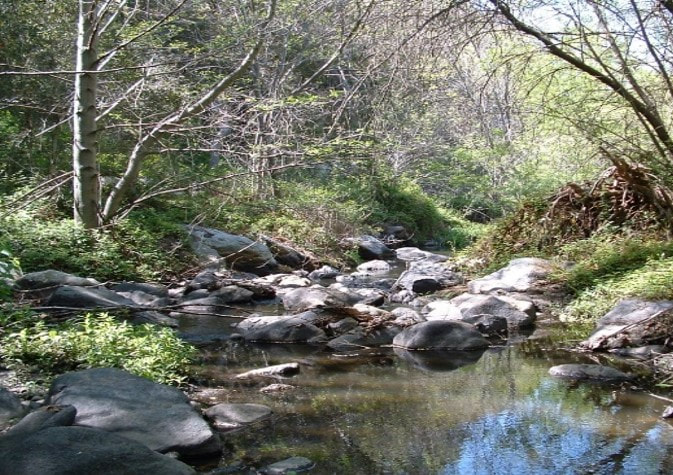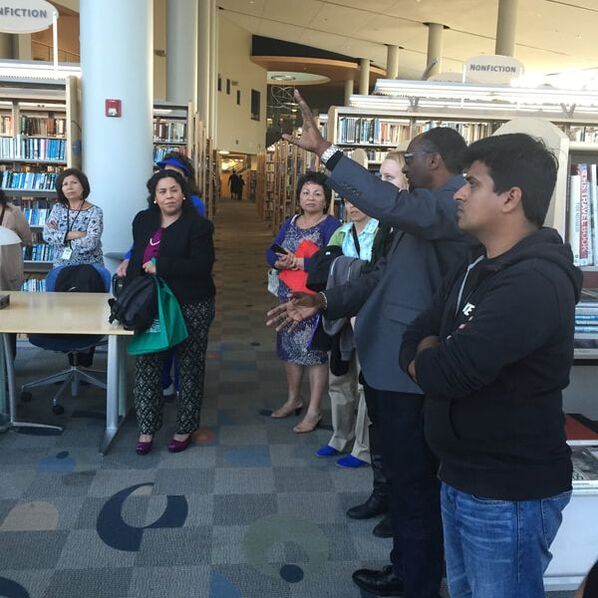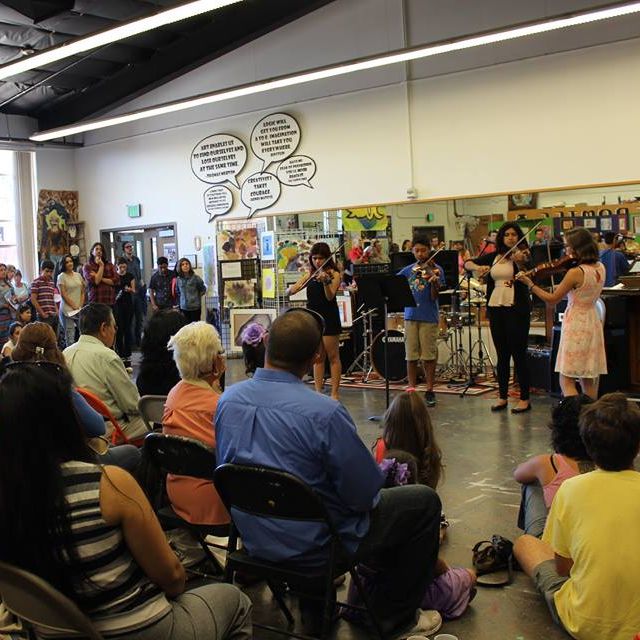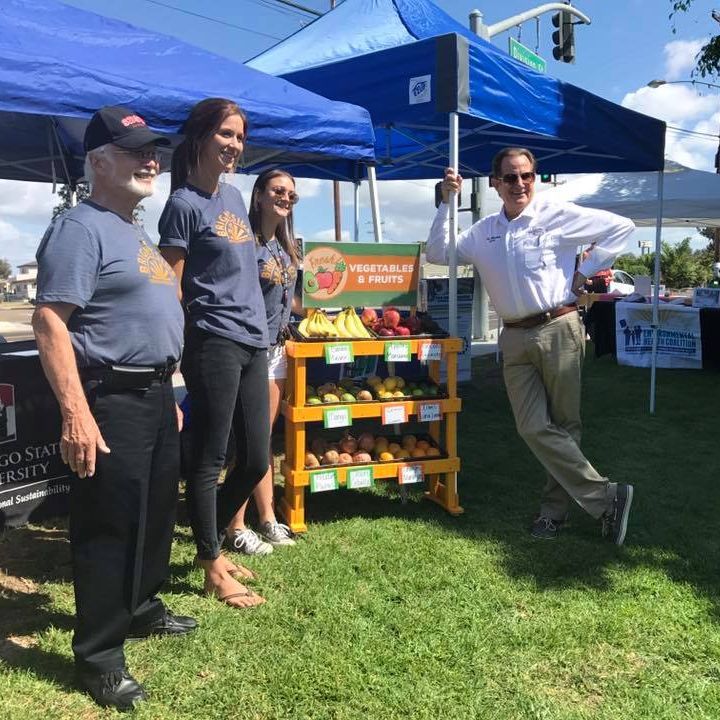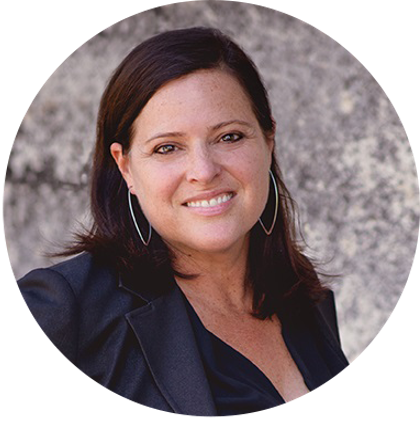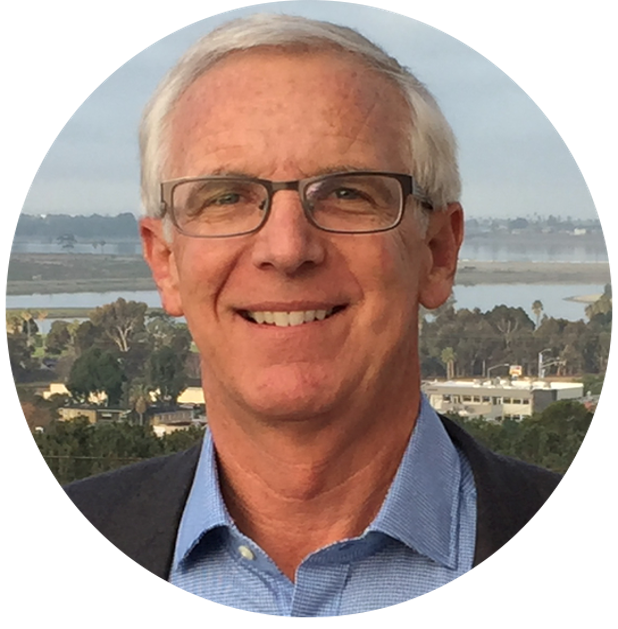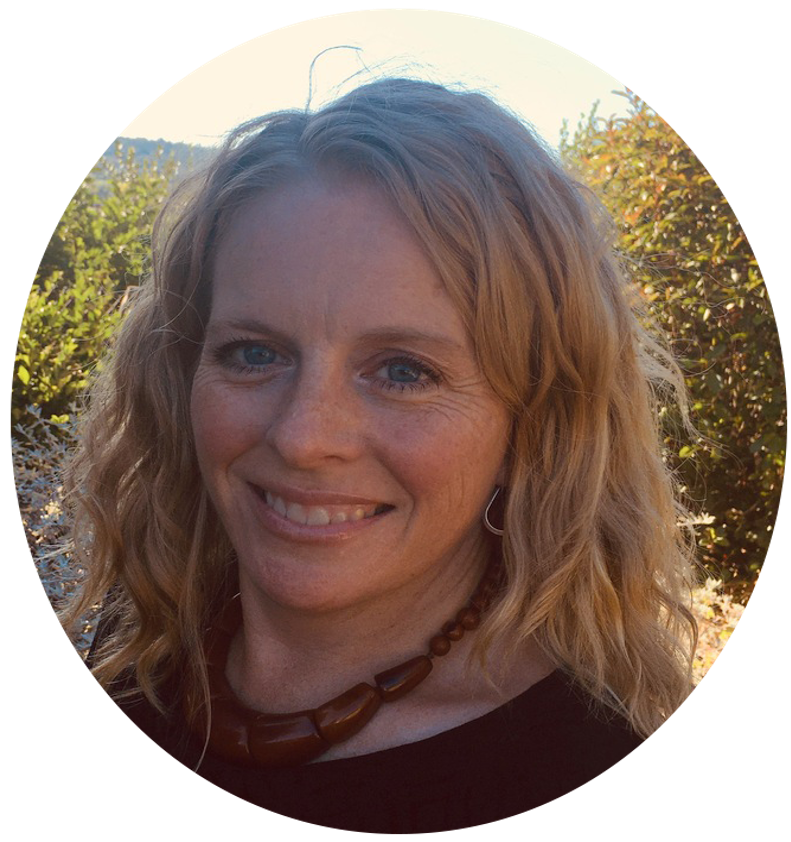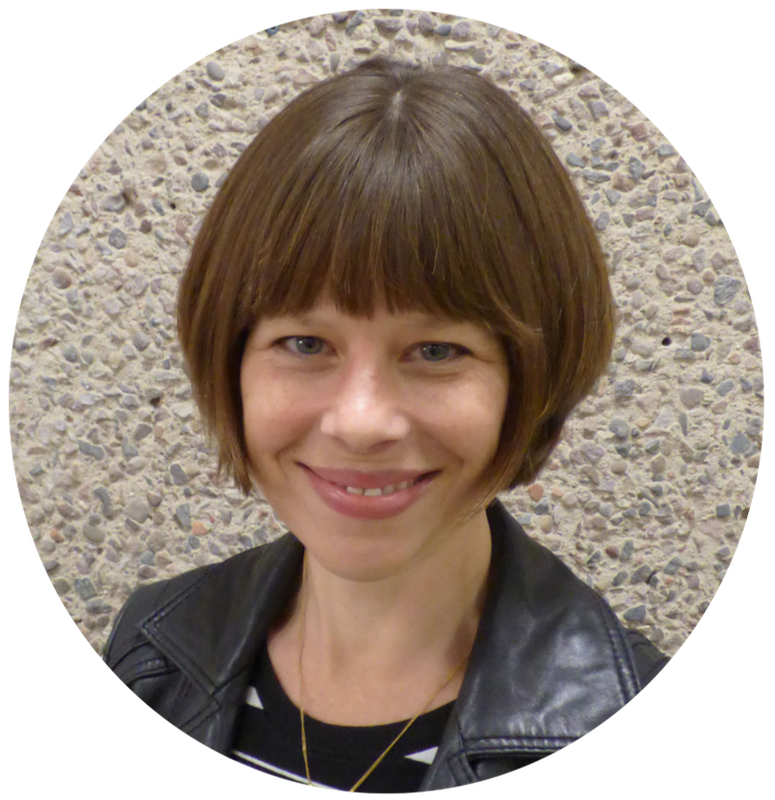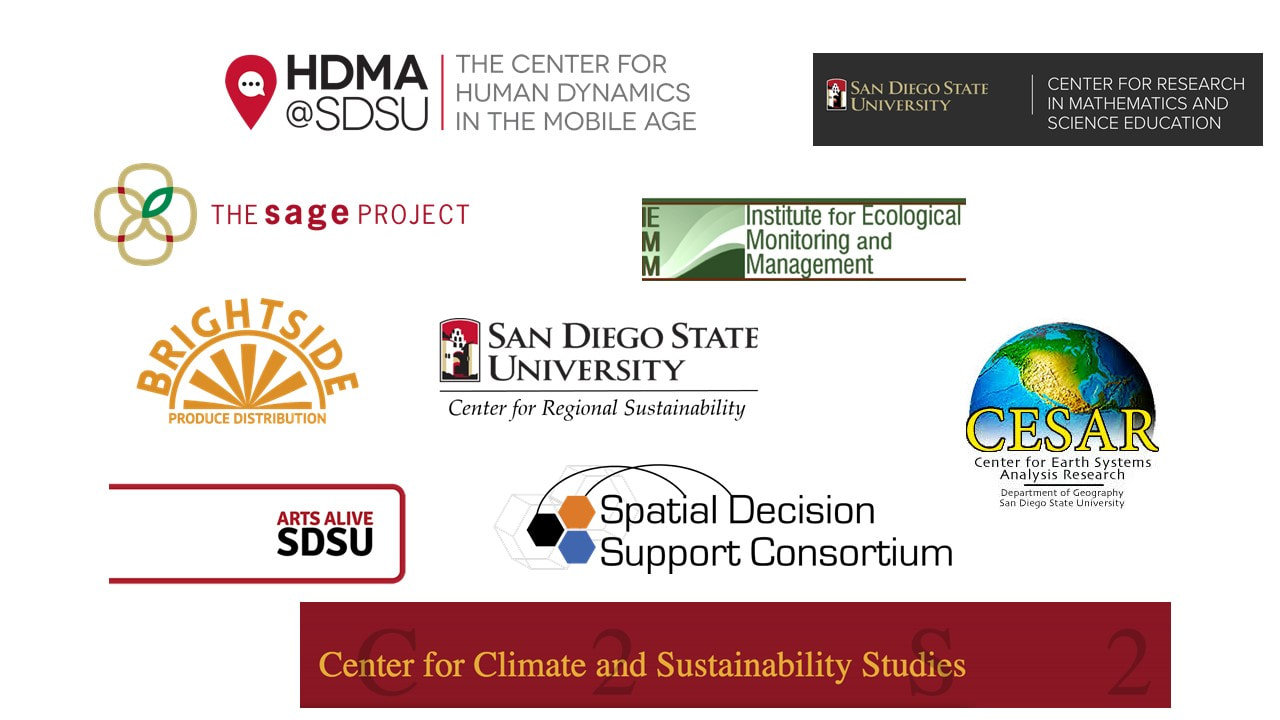community Climate Action Network
|
The capacity to create equitable, vibrant, sustainable communities in San Diego is threatened by climate change related threats, like catastrophic fires, drought, food and water insecurity, disease, and environmental injustice. As a national leader in research, scholarship and community collaboration in the human dimensions of climate change, SDSU is embarking on a new initiative that partners with San Diego’s communities to catalyze community action in climate adaptation and resilience and enact meaningful climate smart solutions. Leveraging expertise in public health, sciences, arts, education, and business, CCAN will demonstrate the power of campus-community partnerships to support resilient, equitable, and sustainable futures in communities across the San Diego, Imperial Valley, and northern Baja California, Mexico region.
CCAN will establish a portfolio of projects to support co-production of knowledge, ideas, and applications. We will also strive to enhance climate change art and expression, education, awareness, and understanding. This portfolio, aimed at supporting sustainable and empowered communities, will catalyze action for climate justice and resilience |
Catalyzing. Community. Action.
Collaboration and co-productionCommunities are at the center of the CCAN network. CCAN will provide a framework for communities to set their own priorities, connect to and co-create climate adaptation and resilience actions, supporting an individualized approach to community empowerment, transformation and action. By creating an entity to develop and share knowledge about climate change and climate action responses, CCAN will help establish a pathway for successful climate adaptation and resilience in priority communities.
|
Knowledge Exchange and Climate expressionWe will develop a CCAN Knowledge Portal that leverages existing information platforms and will serve as the hub for sharing and integrating science/research/scholarship and tools, community knowledge, data visualizations, and community needs. CCAN will also promote and integrate climate expression through a variety of creative mediums to provide accessible information to communities that represent the unique perspective and experiences of community members.
|
Catalyzing Community ActionCCAN will work closely with a range of community-based organizations that are already embedded and invested in supporting transformation to expand our capacity to serve a range of communities. By establishing a community of practice with interconnected networks, CCAN will have longevity and our portfolio can grow to encompass projects that will serve diverse community needs. An important advantage of the CCAN approach, focused on targeting action within local communities first, is that impacts can ripple from communities through the entire region, the state, the country, and beyond.
|
Meet the CCAN Team
Co-champions:
Rebecca Lewison (Biology), Doug Stow (Geography), Megan Jennings (Biology), Jessica Barlow (Speech, Language, Hearing & Center for Regional Sustainability)
Rebecca Lewison (Biology), Doug Stow (Geography), Megan Jennings (Biology), Jessica Barlow (Speech, Language, Hearing & Center for Regional Sustainability)
CCAN Team Members:
Erika Robb Larkins, Isaac Ullah, Matt Lauer (Anthropology)
Amy Quandt, Arielle Levine, Piotr Jankowski (Geography)
Amanda McClain (Exercise & Nutritional Science), Eric Smigel (Music), Iana Castro (Marketing), Meredith Vaughn (Teacher Education), Roger Whitney (Computer Science), Madison Swayne (Public Affairs)
Erika Robb Larkins, Isaac Ullah, Matt Lauer (Anthropology)
Amy Quandt, Arielle Levine, Piotr Jankowski (Geography)
Amanda McClain (Exercise & Nutritional Science), Eric Smigel (Music), Iana Castro (Marketing), Meredith Vaughn (Teacher Education), Roger Whitney (Computer Science), Madison Swayne (Public Affairs)
